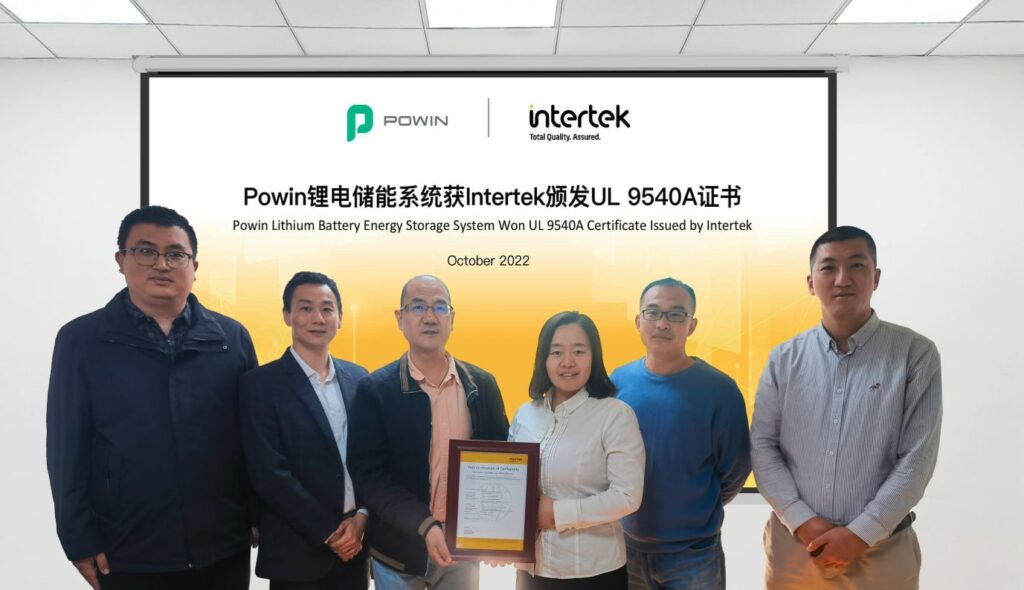
Powin receives UL 9540A certification from Intertek
Battery energy storage system (BESS) integrator Powin Energy has obtained the UL 9540A certification issued by Intertek, allowing it to enter its products into international markets.
Multinational assurance and certification firm Intertek has certified Powin’s Stack750 lithium-ion battery storage product, the first modular product under its Centipede platform.
Enjoy 12 months of exclusive analysis
- Regular insight and analysis of the industry’s biggest developments
- In-depth interviews with the industry’s leading figures
- Annual digital subscription to the PV Tech Power journal
- Discounts on Solar Media’s portfolio of events, in-person and virtual
Intertek’s press release said the certification certifies that Powin’s product underwent large-scale thermal runaway spread testing and has met the world’s highest standards of fire protection and safety.
Oregon-headquartered Powin is one of the world’s largest battery energy storage system integrators, with over 8,000MWh of storage deployed to-date in eight countries and a pipeline of over 10,000MWh.
Read our interview with its executive VP Danny Lu whilst at RE+ in California in September here.
Utility Home Electric cuts ribbon on Tesla BESS in Alaska
Homer Electric Association (HEA) cut the ribbon on a BESS on the Kenai Peninsula in Alaska, US, provided by Tesla.
The storage system is a 46.5MW/93MWh unit formed of 37 Tesla Megapacks, the EV giant’s utlity-scale product.
It is the largest BESS in Alaska and sits on the site of a gas power plant – the Soldotna Generation and Substation Facility – to provide voltage support, enhance grid stability and reduce gas burn.
As previously reported by Energy-Storage.news, the project entered commercial operation in January this year.
HEA received a US$38 million loan to finance the BESS project from the US Department of Agriculture. The utility aims to get 50% of its power from renewable energy sources by 2025, and the BESS will help it integrate those new intermittent resources.
The BESS will also reduce the HEA’s costs of operating its grid in islanded mode from the rest of ALaska’s Railbelt grid, an occurrence which happened in the 2019 Swan Lake Fire.
Energy Dome enters US market through accelerator investment
Rome-based ‘CO2 Battery’ company Energy Dome has entered the US market through an investment from Elemental Excelerator.
Elemental Excelerator has announced its 11th cohort of climate tech investments bringing the total portfolio of companies to 150 startups. Energy Dome and 16 others will received funding and networking support from Hawaii and San Francisco-based Elemental.
Discussing why it chose Energy Dome, the investor said that “the ability to store energy from intermittent sources like solar and wind for prolonged periods has long been a missing piece of the decarbonisation puzzle.”
Energy Dome’s technology uses a thermodynamic cycle to store and dispatch energy with a duration between four and 24 hours, drawing carbon dioxide into a gasholder under pressure to charge, and evaporating and expanding it into a turbine generator to discharge.
Energy Dome said it was chosen because of its proven technology that can be deployed quickly. It recently signed an agreement with Danish energy company Ørsted to run a feasibility study on the deployment of a 20MW/200MWh energy storage system, which would be built in the second half of 2024 at the earliest.






